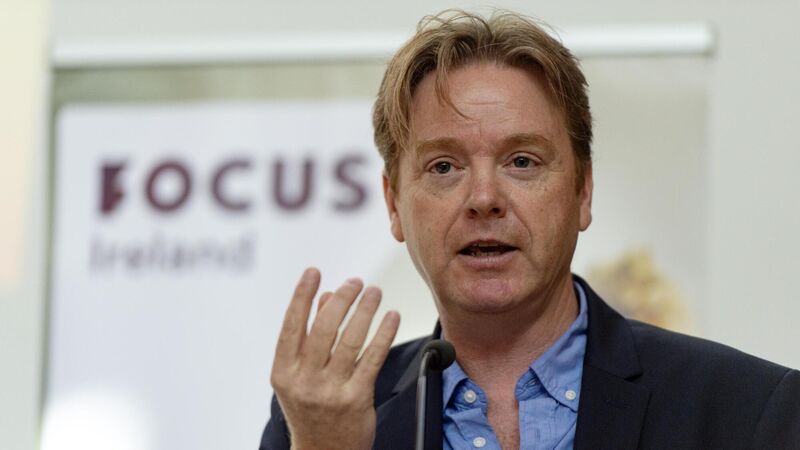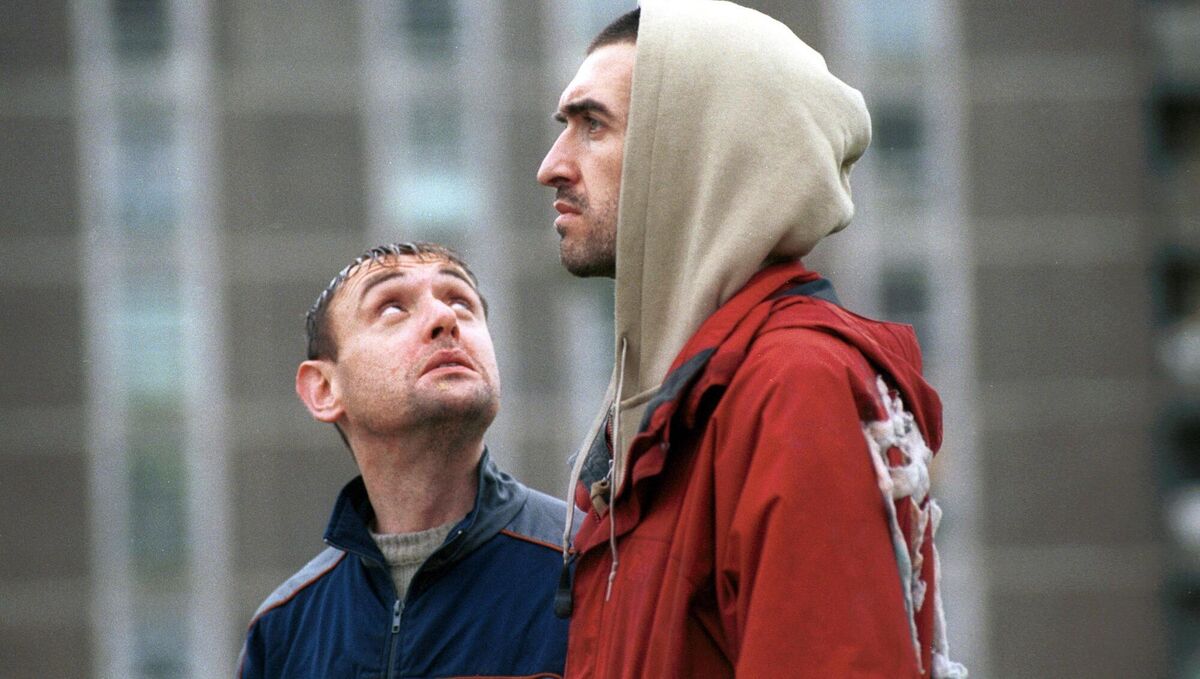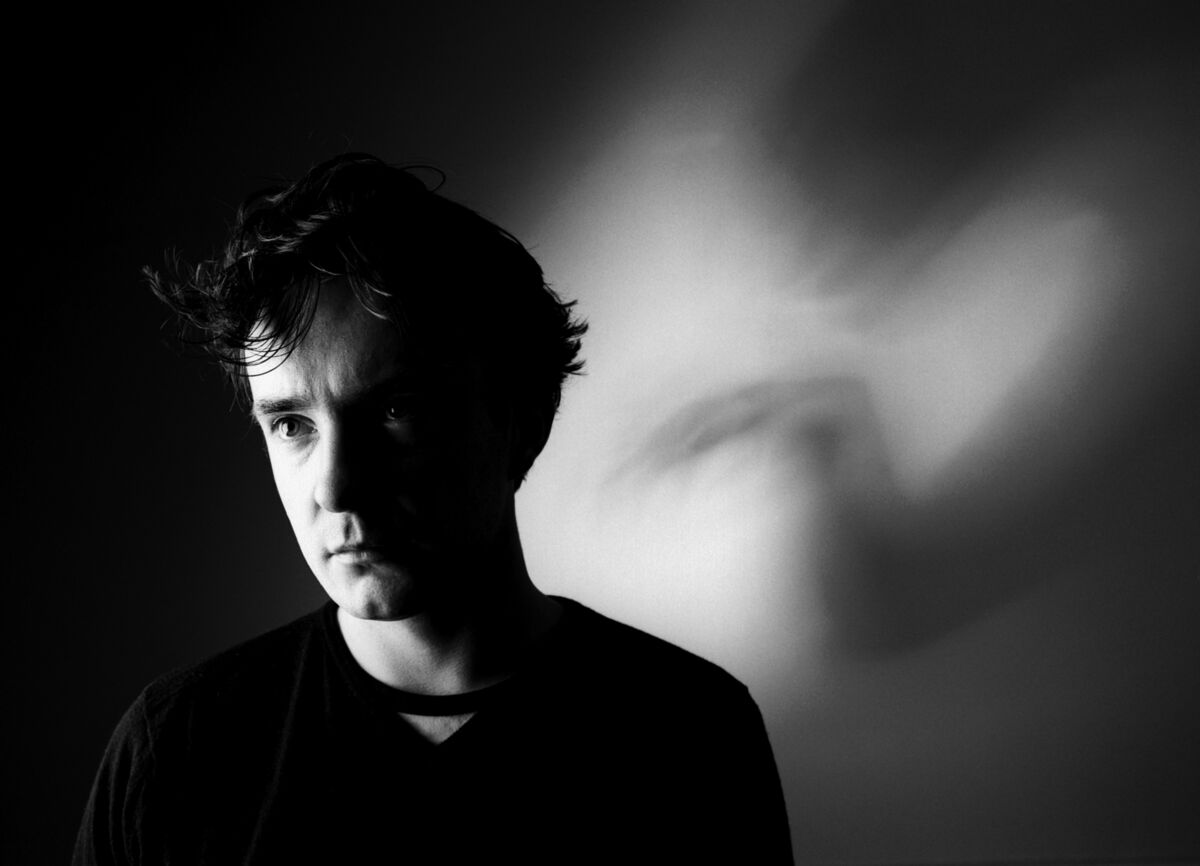Culture That Made Me: David McWilliams on Blindboy, Donna Summer, and Martin Scorsese

David McWilliams brings his podcast to Cork Opera House next week. Picture: Michael Mac Sweeney/Provision
Born in 1966, David McWilliams grew up in Monkstown, Dublin. His knack for demystifying economics ensures regularly gets mentioned among the lists of the most influential economists in the world.
In 2010, he co-founded both Kilkenomics, a comedy and economics festival, and the Dalkey Book Festival. The David McWilliams Podcast on Tour, in which he will delve into his latest book Money: A Story of Humanity, is at Cork Opera House on Monday, October 23.
The first book that grabbed my attention as a teenager, that I could digest and begin to analyse, was George Orwell’s Nineteen Eighty-Four. It changed the way I think. I was so taken aback and excited by it.
It seemed to explain the world to me in an amazing way. The way Orwell wrote – that idea of using allegories to tell a tale – can open up the mind and explain things. Writing is a form of teaching in a way. You have to find your method and Orwell found an amazing method.
I went through a Gabriel García Márquez phase. Interestingly, about a year ago, I went on holiday with mates and one of the wives looked at me and she goes, “You're actually reading Love in the Time of Cholera again.”
I like the idea of a book or a work of art or a piece of music taking you somewhere different and reading magic realism takes you into a magic, post-colonial Latin American world. I love that.
When I was a kid, I was a person who was obliged to like punk and did, but really liked disco if the truth be known. It was uncool to like disco. 'I Feel Love' by Donna Summer was the song I loved.
I felt obliged to walk around with the Killing Joke album under my arm, because you couldn’t look cool liking disco. Through the ’80s, I loved The Jam and The Smiths and then in the late ’80s disco came back into fashion in the guise of house music, so I was back in from the wilderness.
I've always found almost anything by Malcolm Gladwell – who writes principally about pop psychology – fascinating. I find the way he writes, the way he thinks so accessible, but also he makes you think in a certain way.
In Joyce’s Ulysses, Leopold Bloom, a cuckolded fella, needs to get out of the house because his wife, Molly Bloom, is sleeping with a fellow called Blazes Boylan. He doesn't know what to do so he goes for a walk, a very Irish thing to do – you don’t want to face the truth so you go for a walk. On that walk around Dublin he meets all these characters. Bloom is Everyman – this middle-of-the-road guy. Joyce is playing a game with Homer whose heroes were these huge, macho guys. Whereas Joyce’s hero is this little, ineffectual Dubliner, an advertising copywriter, who is an outsider because he's Jewish. He's not heroic, but he's brilliant and kind and gentle and polite and interested in everything. I love a brain that's interested in everything, the idea you can be an economist, but also be interested in literature or music and other carry-on.
I love Martin Scorsese movies, his gangster films, his collaborations with Robert De Niro like Raging Bull. I find Italian American culture very attractive, all the way up to The Sopranos. It's a culture I came across going to New York to work in bars in the 1980s. What intrigues me is the contrast with Irish America. Italian Americans managed, despite being a smaller ethnic group than the Irish, to occupy Hollywood in a way in which we never did. There is no Irish Godfather film trilogy. There is no great suburban Irish American movie apart from maybe The Brothers McMullen.
Anything by Lenny Abrahamson interests me: from Adam and Paul, which is a classic; to Garage, which is so dark and poignant; even the way he took Sally Rooney's Normal People and brought it to life on the screen.

There is an opening scene, for example, in What Richard Did – with a young Jack Reynor starring – where he has three young fellas in the front of the car. If you want to tune in to the dialogue of a certain type of South Dubliner, it's unbelievably well executed. Lenny Abrahamson is a rare talent at the top of his game.
I really enjoy the works of the playwright Conor McPherson. The Weir, The Seafarer – these are extraordinary plays. For some reason he gets inside my head. I don't know why. There's a lot of superstition and darkness and high drama in it. He also wrote the screenplay for one of my favourite movies of all time, I Went Down. He’s a great example of a world-class Irish playwright, probably the greatest living playwright we have.
My favourite comedian is Dylan Moran. Ardal O’Hanlon is an old friend of mine. Ardal and I were in school together. We sat beside each other in the first week of French class in Blackrock College. Ardal’s bizarre sense of humour made me laugh all the way through school. He’s one of the greats.

Dylan is in the same vein. What I like about Irish comedians in general is their ability to tell stories, and their whimsical nature. I’ve been around comedians a lot and I find them to be amongst the most intelligent people I’ve met. They're not always great fun, which is interesting, too.
The best public speaker I've ever seen is Stephen Fry. I saw him do a one-hour monologue on the tragedy of Oscar Wilde. It blew my mind. Stephen Fry is just an unbelievable public speaker – humorous, poignant, great timber and cadence, knowledge, of course, and he has the personality to carry the whole thing off. He's written books about the great Ancient Greek myths which are brilliant. If you want to do a crash course in spoofing about classics, read Stephen Fry.
I've met many talented and exceptional people, running festivals, doing this and that, but Blindboy is up there with the greats, an original. I was listening to one of his podcasts recently.

He brought me to a little island in the middle of Limerick, somewhere on the Shannon. He was talking about a giant hogweed, a nasty weed that can kill all plants around it. Then he explained where it was originally from – the Caucasus Mountains around Georgia. Then he started talking about the 1850s when botany became popular, particularly in Britain. It was fascinating.
If I want a podcast – like with magic realism – to take me to a different place, I listen to Blindboy. He’s a very calming influence. He has this Munster sense of humour, and a laconic, slow but very incisive sensibility, with his slightly off-note piano in the background.


